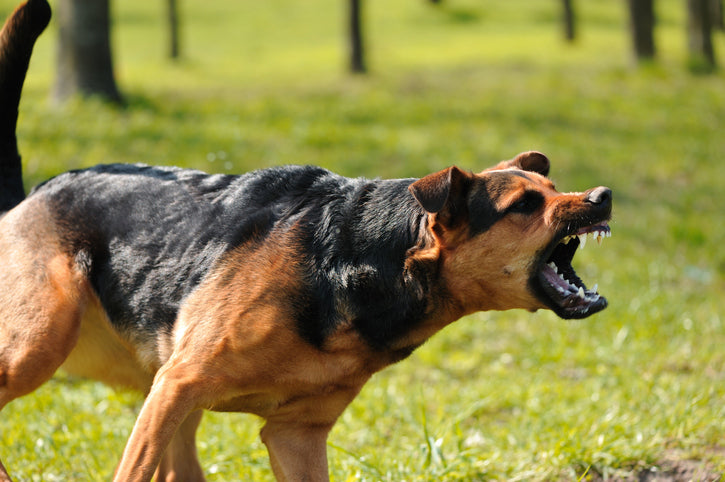Do you feel nervous around scary dogs? If so, please take a minute to read this.
So today I got a lovely email out of the blue which got me thinking!
Yelski, my first foster dog, was sent to Sweden 6 years ago, and his owner who adopted him just found me on Facebook and sent me the beautiful picture.
However, the first time I met Yelski I was petrified of him!!
Was he barking? No. Was he jumping up? No. Was he displaying any signs of aggression? No. So why was I scared?
Because he was a Pitbull (*likely American Staffordshire terrier).
When I first met Yelski I had been working with dogs for about 4 years and had been studying dogs, and dog behaviour for several years. I had worked with dogs of all shapes and sizes, and was pretty confident in my knowledge that I would know how to spot a dog that was likely to bite.
I had gotten on to Dog Action Welfare Group to let them know that I had the space to foster a couple of dogs. They replied that they had two for me, Frank, a white German Shepherd, and Yelski, a Pitbull. I said “great” and went about my day as they were not due to arrive until about 7pm.
I thought no more of it, and as 7pm ticked ever closer, I finished up my cleaning and waited for the bell to go. Once the dogs arrived, I opened the door with a smile on my face.
The instant I looked at Yelski my blood went cold. My mind went into autopilot and I remember a voice in my head saying “don’t look him in the eye, don’t look him in the eye.” I tried to have a normal conversation with the lady who dropped them off, but inside I was panicking.
She left, and I put the dogs into the daycare while I calmed down and tried to figure out why I had gotten so spooked. It only just occurred to me then, Yelski was the first Pitbull that I had met, up close and personal. My years of training and studying had told my conscious mind that a Pitbull was no more likely to bite me than any other dog.
HOWEVER, through classical conditioning, my subconscious mind had formed an association in my brain, forming an association in my brain, where the presence of a Pitbull elicits fearful emotions.
Do you guys remember learning about Pavlov’s dog in school? Where Pavlov’s dog would drool when presented with food? Then Pavlov began ringing a bell before presenting food, then after repetition, the dog would begin to drool when the bell rang? This is classical conditioning at its finest.
Yelski came home with me that evening, and within minutes decided he was a lap dog and the sweetest lap dog at that! He was my baby for about 3 months, always looking for cuddles, and grunting at me if I stopped petting him. He made loads of friends at doggie daycare and fell in love with Cyan, his Dalmatian girlfriend. I don’t mind admitting that I cried when saying bye to him and was quite emotional when I got the email update from his new owner in my emails!
Are you scared of clowns? Non-poisonous spiders? Going into a dark attic alone?
If so, and you have not had a negative experience to cause this fear, then you have been classically conditioned too.
This is one of the foundation elements of learning, and classical conditioning impacts us all day every day. Advertising and branding is all about classical conditioning. The feeling we get when we hear ‘bank holiday weekend’, or ‘homework’ is classical conditioning. It is super powerful.
When we form an association through classical conditioning that something is dangerous, it is really quite difficult to break this association, as our brain holds on tight to fear associations, after all, fear helps us to survive. However, you need to remember, if you are frightened by a dog breed, you are barking up the wrong tree!
- A friendly Pitbull is far less likely to bite you than a frightened dog.
- A friendly Doberman is far less likely to bite you than another dog guarding a bone.
- A friendly Rottweiler is far less likely to bite you than another dog minding her puppies.
- A friendly Mastiff is far less likely to bite you than an anxious dog.
- A friendly German Shepherd is far less likely to bite you than a dog that is lunging at another dog.
The restricted breed list in Ireland is classical conditioning at its finest. The government tells us (with no scientific basis) that this list of dogs is more dangerous than dogs of breeds not on the list). This has no scientific basis, has been discredited by research into dog bites in Ireland, but will cause classical conditioning in those who read the list to associate these breeds with more danger.
The media often use images of certain breeds, snarling, when reporting a dog bite, when it’s not uncommon that after the media attention we later find out that it was not that dog breed involved. However, the classical conditioning has been done.
I had a client for consultation who, unknowingly, had adopted a lovely dog that just happened to be a restricted breed. She took her new dog home, fell in love with her, then at a trip to the vets was told that her dog was dangerous by the vet, because it was on ‘the list.’ This client lost all trust in her dog and was working hard at re-building their relationship, simply because she was then conditioned to associate her dog with high risk of aggression (this tubby dog was a lot more danger to the cookie jar than to any human!).
I don’t expect that reading this article will change your opinion. Classical conditioning was powerful enough to make me fear Yelski despite my training and experience. However, I hope that understanding it a little better might help you understand your own emotional response a little more, and help you to logically understand irrational fears.
 Nanci CreedonNanci Creedon
Nanci CreedonNanci Creedon
Nanci Creedon is Ireland’s top dog behaviour expert. With a primary degree in Zoology and a masters degree in Animal Behaviour Nanci has also continued to take courses, attend seminars, and continue to educate herself during her 10 years working professionally with dogs in Ireland.
As a certified dog behaviour expert Nanci appears regularly on National television (regular slot on RTE’s Today Show) and in print media.
Nanci is also an award winning businesswoman, winning Cork City’s Best Young Entrepreneur in 2014 as she owns and operates two companies – Creedons Doggie Daycare which offers dog daycare, luxury pet hotel, dog grooming, training classes and private behaviour consultations, as well as Creedons College, a private education institution where industry experts offer a wide variety of educational courses.







